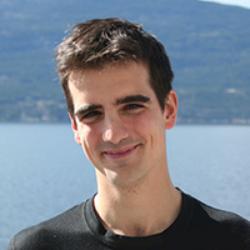February 24, 2020
Prof. Timothy Rogers receives NSF CAREER Award
A project from Timothy Rogers, assistant professor of electrical and computer engineering, aims to increase the number of individuals and problems that can benefit from energy-efficient, accelerated computing. The research is being funded through the National Science Foundation (NSF) Faculty Early Career Development Program (CAREER) Award.










